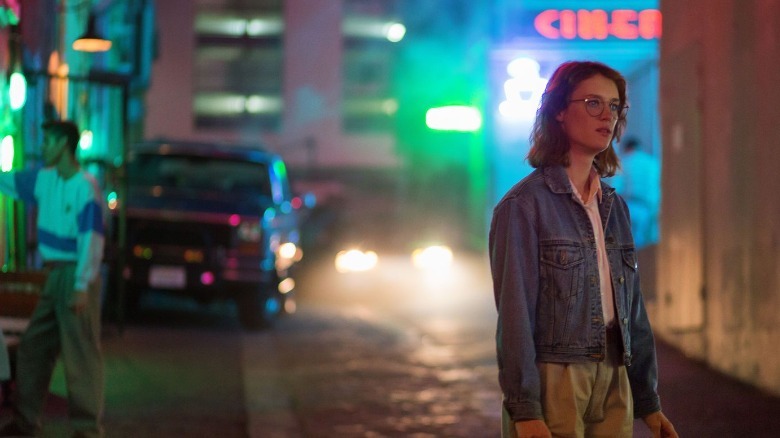Black Mirror Moved To Netflix Because It Wasn't 'Black Mirror' Enough For Channel 4
The smashing success of "Black Mirror" is likely due to the crushing anxiety that technology has and continues to infect the entire world with. There are few subjects as universally relatable as the Internet, which has bridged communication with people around the globe at the same time as it has created dangerous rifts within communities. Although the series began on the United Kingdom-based Channel 4 network in 2011, executives there didn't gel with its creative direction or its budget. As a result, "Black Mirror" moved to Netflix starting in season 3, which has undoubtedly helped the show pick up a more international audience.
Despite its global success and appeal, the series started off as quite a British venture, utilizing an extensive list of British actors (many of whom moved on to successful careers of their own afterward, such as Daniel Kaluuya, Jodie Whittaker, and Rory Kinnear) and focusing on British culture and politics on more than one occasion, including the debut episode "The National Anthem" and the Boris Johnson-inspired piece "The Waldo Moment." The migration to Netflix represented a shift in the show as the budget increased and, in the words of fans who were uneasy about the new broadcasters, the themes and characters experienced an "Americanization," in the words of fans who were uneasy about the change in broadcaster. However, showrunner Charlie Brooker and executive producer Annabel Jones had already envisioned ideas for the third season that Channel 4 didn't think fit the tone of "Black Mirror" appropriately.
Dark Times on White Christmas
Channel 4 already started showing hesitancy about continuing "Black Mirror" since "White Christmas," the one-off special that premiered in 2014. Months before the premiere, Brooker and Jones had failed to achieve funding from an American production company, and executives told Brooker and Jones on the morning of the press screening that Channel 4 didn't have the budget to continue the show. Brooker had already pitched ideas for season 3, some of which ended up in "White Christmas" and some of which ended up in the eventual Netflix incarnation, but he revealed to the "Radio Times" that Channel 4 thought that they "weren't very 'Black Mirror.'" Instead, the network itched back to Brooker an alternate anthology sci-fi series starring Bryan Cranston entitled "Electric Dreams," a reference to the works of Philip K. Dick.
Luckily for Brooker and Jones, Netflix had already added "Black Mirror" to its back catalog, meaning the streamer was in a highly strategic position to outbid American competitors AMC, SyFy, and HBO. Furthermore, Netflix didn't have any qualms about the show's future storylines and gave Brooker more creative freedom and a larger budget, a stark change from the stingy Channel 4 guidelines. Season 3 was noticeably happier than the cynicism of the previous episodes (the first episode, "Nosedive," is visually and tonally brighter, while the Emmy-winning "San Junipero" is downright feel-good), which may explain why Channel 4 didn't deem them worthy follow-ups. It turns out, unsurprisingly, that the concept of "Back Mirror" is much larger than its humble, dark, and British beginnings.

